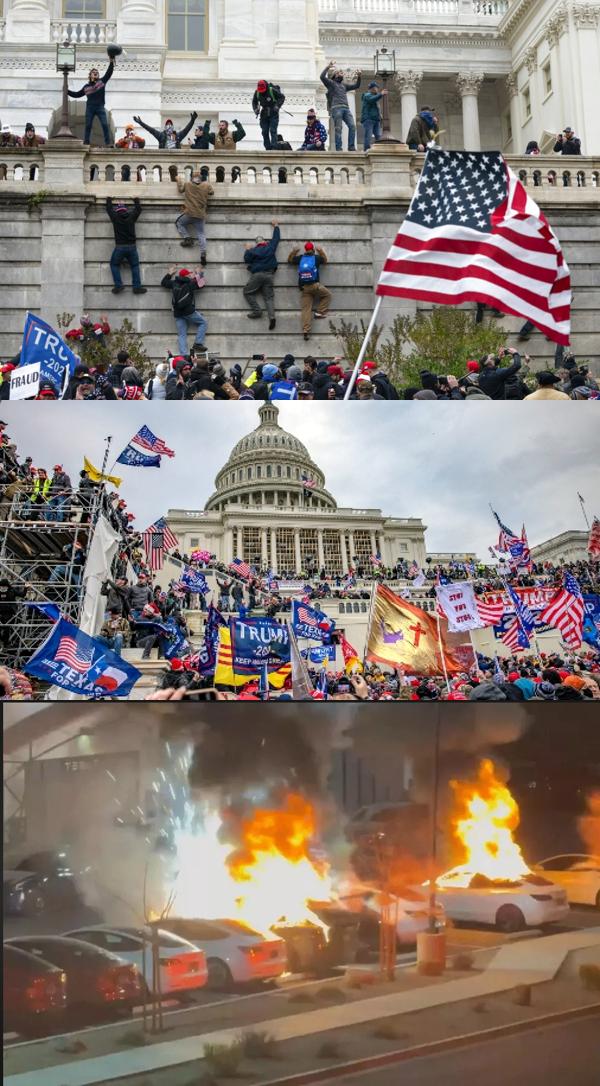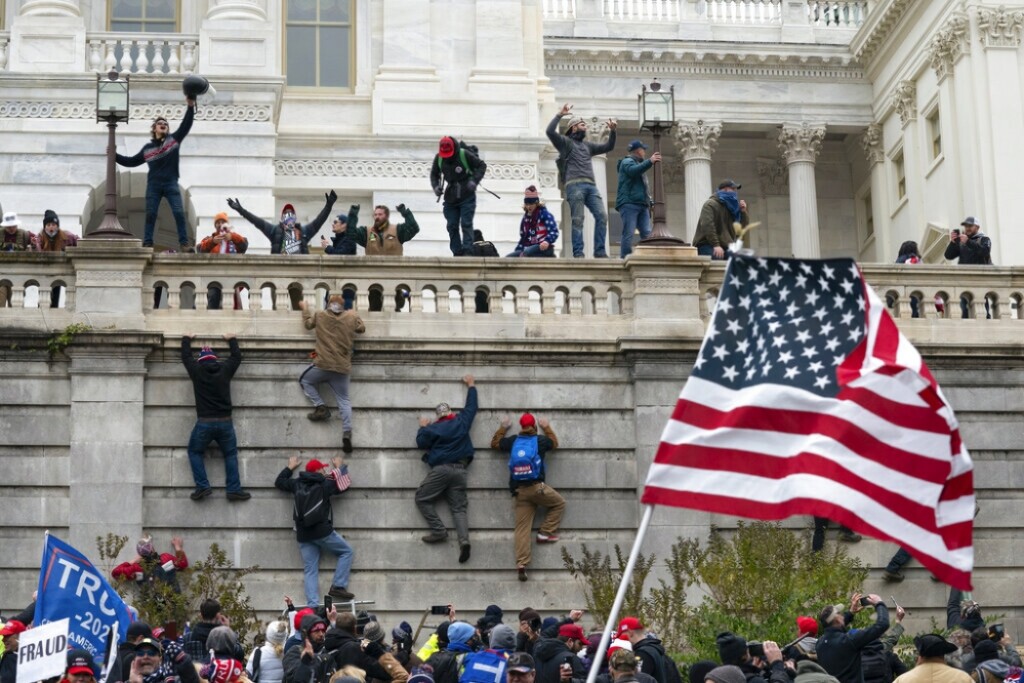
In a stunning display of hypocrisy, former President Donald Trump recently labeled peaceful protests against Elon Musk and Tesla as acts of “terrorism.” This comparison draws a stark contrast between legitimate demonstrations against a powerful billionaire and the violent insurrection on January 6, 2021, where Trump loyalists attacked the U.S. Capitol in an attempt to overthrow the results of a democratic election. It is critical to dissect these events, analyze their severity, and educate the public on the vast difference between these incidents.
January 6, 2021: A Coordinated Assault on Democracy
On January 6, 2021, a violent mob of Trump supporters stormed the U.S. Capitol with the explicit intent of preventing the certification of Joe Biden’s electoral victory. The chaos that ensued was not a spontaneous protest—it was a coordinated attack fueled by months of misinformation and incendiary rhetoric from then-President Trump.
The Reality of January 6:
- Loss of Life: Five people died as a result of the violence, including Capitol Police Officer Brian Sicknick, who succumbed to injuries sustained during the attack. Two other officers, Jeffrey Smith and Howard Liebengood, later died by suicide due to the trauma they endured that day.
- Injuries and Trauma: Over 140 police officers were injured, many suffering permanent physical and emotional trauma. Rioters wielded weapons, used bear spray, and brutally assaulted officers defending the Capitol.
- Damage to Property: The insurrection caused extensive property damage to the Capitol, a symbol of American democracy. Desks were smashed, windows broken, and offices vandalized, including that of House Speaker Nancy Pelosi.
- Legal Fallout: More than 1,200 individuals have been charged for their roles in the insurrection, with several receiving lengthy prison sentences. Yet, despite overwhelming evidence of violence and conspiracy, Donald Trump has expressed a desire to pardon many of these offenders if re-elected—a direct affront to justice and the rule of law.
Elon Musk, Tesla, and the Protests: The Truth Behind the Anger
In contrast, the recent protests against Tesla and Elon Musk have been peaceful demonstrations aimed at highlighting the dangerous concentration of power and Musk’s increasing involvement in U.S. government affairs. Musk, the world’s richest man, has used his wealth and influence to align himself with Trump and Republican extremists, often undermining democratic principles.
Why Are People Protesting Musk?
- Interference in Government: Musk has gained unprecedented influence in government decision-making. He controls critical communication platforms such as X (formerly Twitter), which has been used to amplify extremist rhetoric.
- Layoffs and Corporate Misconduct: Musk’s acquisition of Twitter led to mass layoffs, disrupting livelihoods and destabilizing the platform’s moderation policies, allowing harmful misinformation to spread unchecked.
- National Security Concerns: Musk’s control over SpaceX’s Starlink, a satellite communication system, raises concerns over how a private entity has such a critical role in global communications and security.
- Union Busting and Worker Exploitation: Tesla has a long history of suppressing unionization efforts and mistreating its workforce, leading to ongoing protests from labor activists demanding fair treatment.
Protests vs. Insurrection: The Stark Difference
Despite Trump’s outrageous claims, the protests against Tesla bear no resemblance to the January 6 insurrection. The key differences lie in their purpose, methods, and outcomes:

- Protests Against Tesla: Peaceful, non-violent demonstrations aimed at holding a billionaire accountable for his undue influence on government and society.
- January 6 Attack: A violent, premeditated assault on the U.S. Capitol intended to overturn a democratic election through force.
Trump’s Hypocrisy: Protecting Billionaires, Pardoning Insurrectionists
Donald Trump’s attempt to paint peaceful protests as terrorism is not only a dangerous distortion of reality but a blatant effort to protect his billionaire ally, Elon Musk. It is no coincidence that Trump, who has pardoned violent insurrectionists and downplayed the severity of the January 6 attack, is now defending a billionaire who shares his authoritarian ambitions.
Pardoning Criminals, Undermining Justice:
- Trump’s promise to pardon those convicted for their roles in the Capitol riot signals a disregard for the rule of law and emboldens future violence.
- Individuals charged with seditious conspiracy, assaulting police officers, and plotting to disrupt the peaceful transfer of power are being glorified as “patriots” by Trump and his supporters.
What’s at Stake: America’s Democratic Future
The consequences of downplaying the January 6 insurrection while vilifying legitimate protests against powerful elites like Elon Musk cannot be overstated. If left unchecked, this narrative could normalize authoritarianism, embolden extremists, and dismantle the safeguards that protect American democracy.
What Can Americans Do?
- Stay Informed: Recognize misinformation and reject attempts to equate peaceful protests with acts of violence.
- Demand Accountability: Hold leaders accountable for undermining democracy and pardoning criminals who threaten the stability of the nation.
- Resist Authoritarianism: Speak out against efforts to silence dissent and consolidate power in the hands of the few.
Conclusion: Understanding the Real Threat
Comparing the January 6 insurrection to protests against Elon Musk is not only misleading but dangerous. One was an attack on democracy that resulted in death and destruction; the other is an exercise of First Amendment rights to protest corporate overreach and government collusion. As Trump and his allies continue to distort reality to consolidate power, it is more important than ever for Americans to stay vigilant and protect the fragile democracy that remains.
The choice is clear: Stand for democracy or allow it to be dismantled piece by piece.





